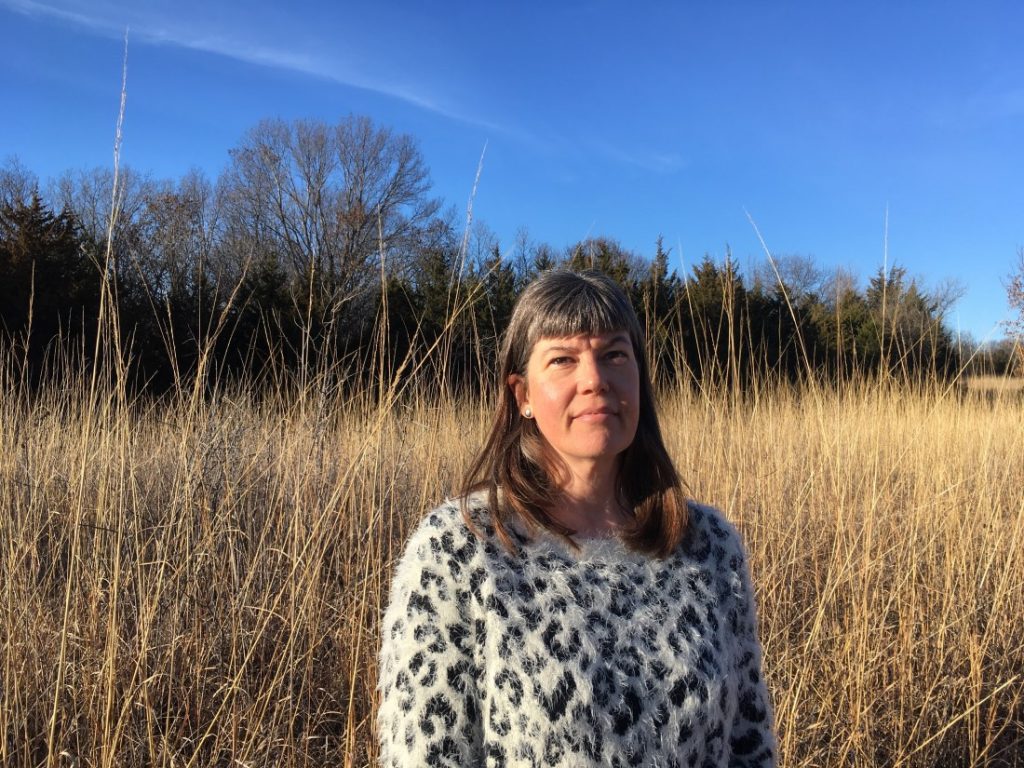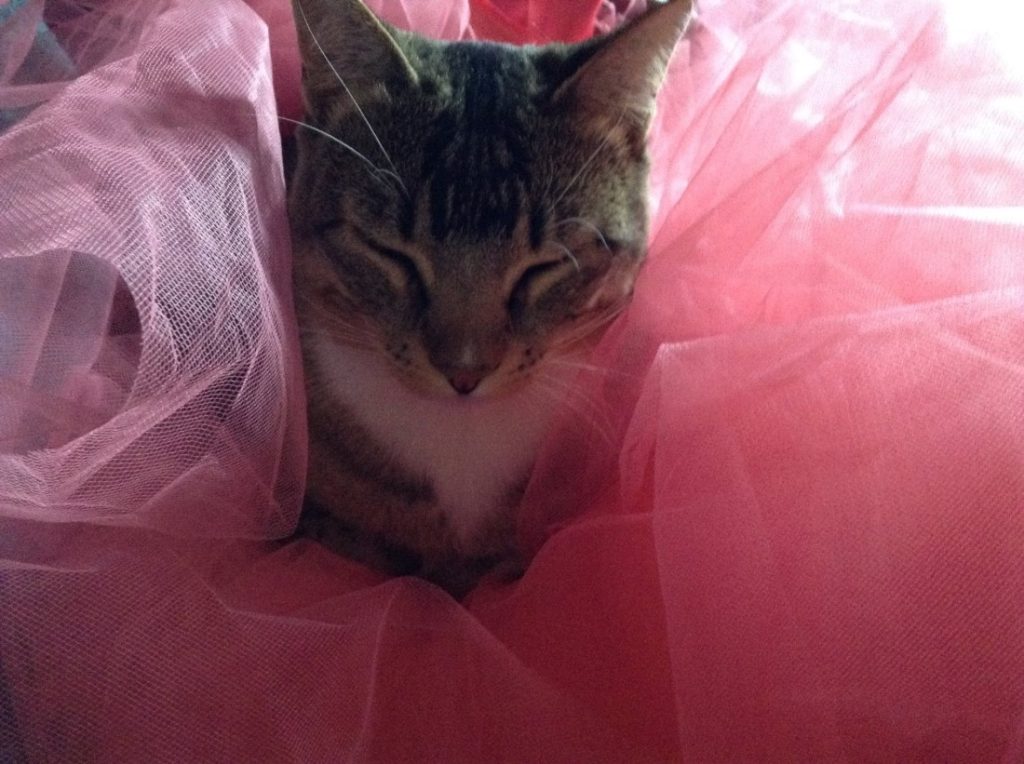Meet the KSRL Staff: Erika Earles
This is the latest installment in a recurring series of posts introducing readers to the staff of Kenneth Spencer Research Library. Today’s profile features Erika Earles, who joined Spencer Research Library in June 2022 as a Manuscripts Processor.
Where are you from?
I grew up on a farm in Baldwin, about fifteen miles southeast of Lawrence. My mom taught at Lawrence High, and I was glad to attend high school there as a result. We were the last class to graduate before Free State High opened. With about 800 graduates, the lengthy graduation ceremony was held at Memorial Stadium. Then I went to school in Upstate New York, worked trails across the West and in Yellowstone National Park, and settled in Teton Valley, Idaho, where I worked at the local library.
What does your job at Spencer entail?
My job is to look through the items that have been accepted into the library collection, put them in acid-free containers, and describe them in the KU Libraries online catalog so researchers can find them. I’m a manuscripts processor, so most of the items I deal with are papers and unpublished writing, but occasionally there are audiovisual materials, photographs, slides, or objects like scarves, flags, and toys. You never can tell what you’ll find.
What is one of the most interesting items you’ve come across in Spencer’s collections?
In my first weeks at the Kenneth Spencer Research Library, I processed the collection of Martha “Matt” Mueller, a KU graduate, librarian, and newspaper columnist. In addition to some of her writing, the items included several autograph collections. One of the pieces was a 5-pound check written out to cash, signed and underlined three times by Charles Dickens! He is one of my favorite authors. He’s still funny after 150 years! I was star-struck and astounded that I was touching the same piece of paper that he touched so many years before. My supervisor was unfazed – just a regular day at work for her – but I still get excited when I think about it.
That was the most exciting thing for me personally, but one of the most interesting things I’ve processed is the Pamphlets on Cherokee Neutral Lands. This was a bound volume, separated for preservation and ease of use, that included writing from people on many sides of a contested land issue in southeast Kansas. In 1866, the Secretary of the Interior sold the land to his brother-in-law, who represented a railroad company.
This collection includes the federal court papers detailing the two suits filed by the railroad to establish title to the land; pamphlets circulated by white farmers who asserted their right to the land as homesteaders and criticized the government support of corporate interests over the working man; and a statement from the chief of the Cherokee tribe stating that the tribe had paid for and continuously occupied the land, nullifying the right of the government to sell or the settlers to occupy it. It also includes an Indiana Representative’s report to the Indian Affairs Committee decrying a government that breaks its own treaties with various tribal nations despite their peaceful negotiation and warning that the recent Civil War had shown the United States what comes of denying legal rights to an entire group of people.
These documents are a reminder that racial and economic issues that we may think of as modern are not. People have fought for and against equity and fair distribution of resources since the founding of the country. The struggle for tribal sovereignty, full rights of citizenship, and racial equity – and the relationship between the federal government, corporations, and workers – are still being negotiated in our culture and our legal system 150 years later. Reading how people talked about these issues in their own words and how decisions were made helps you understand how we got to where we are today.
What part of your job do you like best?
Learning about local history is always interesting to me. I recently learned that the fire department in Lawrence used to be alerted by bells that would ring a certain number of times for each fire district. According to a local woman who gave a talk at Pinckney Elementary School in the 1970s, they rang those bells when World War I ended. When people called the local telephone operator to find out what was going on, they were told the good news. She said when World War II ended it was announced on the radio.
These kinds of details give you a real glimpse into the past. I enjoy learning about people and places this way and helping to ensure that their legacy will be available for future generations.
What are some of your favorite pastimes outside of work?
Walking in the woods with my dad under the Kansas sky is one of my favorite things ever. I also enjoy going to art museums, painting, drawing, reading, dancing, and hanging out with my stylish cat, Iyla View, a.k.a. Miss Pants. (The unusual spelling of Iyla’s name is a nod to her home state of Idaho, where people spell names however they choose.)
What piece of advice would you offer a researcher walking into Spencer Research Library for the first time?
Search the catalog for something that interests you and let the friendly staff in the Reading Room help you find it. Don’t leave without getting something in your hands. There is nothing like looking at original materials.
Erika Earles
Manuscripts Processor
Tags: About Us, Behind the Scenes, Careers in Libraries, Erika Earles, Meet the Staff, Processing


